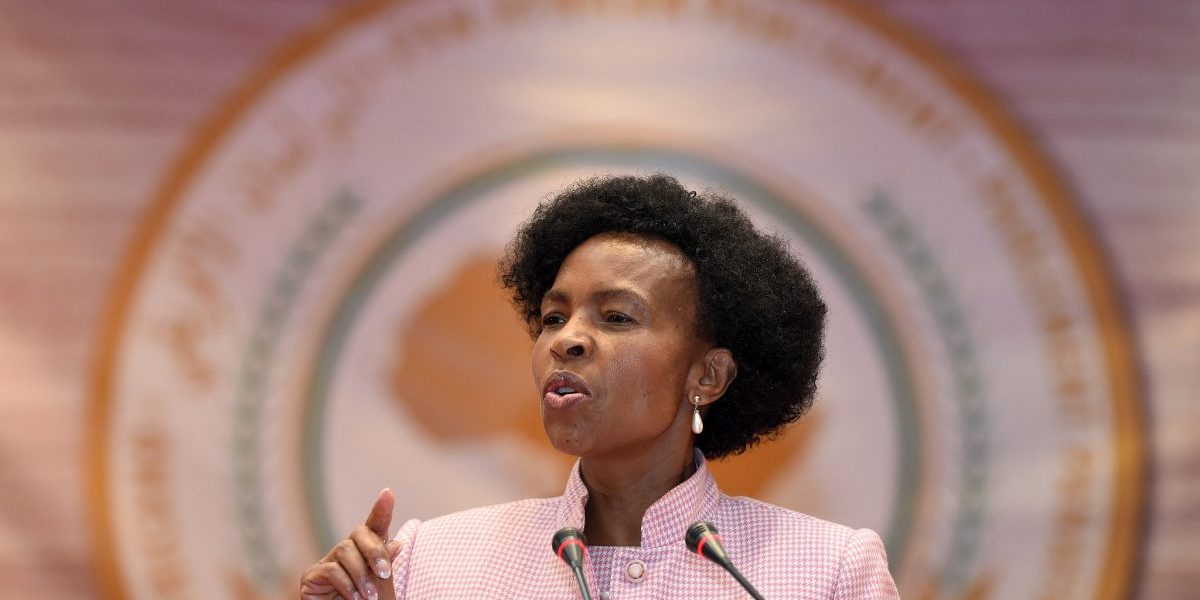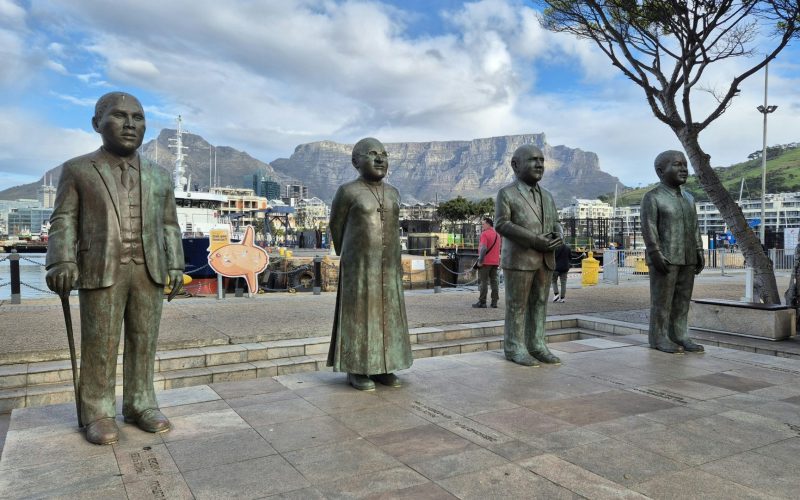But, after a first week spent largely in discussions of protocol, procedure and budget, the continent’s parliamentarians demonstrated a sudden and promising resolve to beef up the institution.
Two actions highlight this new commitment to represent citizens’ concerns and to take their oversight role in the African Union (AU) seriously: first, the MPs’ near-unanimous resolution calling for the unconditional release of jailed Ugandan opposition leader Kizza Besigye; and second, their temerity in taking AU Commission chairperson Alpha Konare to task regarding the AU’s failure to submit its budgets to the parliament. Both events were unprecedented in continental corridors of power.
Placard-waving protesters from Besigye’s Forum for Democratic Change protested outside the PAP in Midrand and handed over a memorandum in which they petitioned the parliamentarians to intervene in Uganda’s deteriorating political and human rights situation. MP Miria Matembe, who chairs the rules committee, upheld the right of Africans to lobby the parliament, which “is supposed to be the voice of the people”. But the body’s willingness to actively court the certain wrath of President Yoweri Museveni, who commands support around the globe despite Uganda’s lack of democratic polity, was commendable.
The MPs, pursuing their pledge to promote “human rights, consolidate democratic institutions and democratic culture, good governance, transparency and the rule of law by all organs of the AU”, mandated PAP president Gertrude Mongella to urge AU intervention in Uganda, in line with the AU protocol on human rights. With the exception of a single Ugandan MP, the resolution was passed unanimously, demonstrating the continental assembly’s potential value for raising concerns that may be suppressed by autocratic regimes at the national level.
The Ugandan government’s reaction was predictable. “It (PAP) does not have the mandate to interfere in how Uganda is governed,” said Ugandan Information Minister James Nsaba Buturo. He said the Besigye case was before a competent judiciary that should be respected by the PAP. But Besigye’s supporters argue that interference with the judiciary and harassment of opposition members are routine in Uganda. Consequently Besigye, who has been charged with treason, rape and terrorism, is unlikely to get a fair trial and could face the death penalty.
In its other surprise move, the parliament flexed its muscles with regard to budgetary oversight, interrogating Konare when he failed to include a briefing on the AU budget in his address to the PAP on December 1. The continental parliament’s oversight function includes scrutinising the AU budgets and making recommendations to reduce wastage and improve efficiency.
The PAP has made formal requests for the AU budgets to be forwarded to it, but these have never been submitted. While conceding that the AU has experienced budgetary difficulties with regard to collecting contributions from member states, parliamentarians expressed concern that the AU’s failure to submit budgetary information was subverting a key function of the assembly. In addition, they noted that the PAP’s own efficiency had been compromised due to a $1,6m shortfall in its 2005 budget, allocated by the AU.
The sitting resolved to form a joint committee of PAP members and AU commission representatives to harmonise the relationship between the organs and ensure the flow of information.
The PAP must be lauded both for its initiative in seeking innovative solutions to the AU’s financing woes and the boldness with which it has begun to fulfil its oversight function during the fourth sitting of the assembly. In taking a former president and the current AU Commission head to task, it has demonstrated a welcome commitment to upholding the separation of powers at continental level.
While the African parliament had previously condemned undemocratic actions in small and relatively insignificant countries like Togo, it seemed unwilling to take a stance on heavyweights such as Zimbabwe and Uganda, prompting speculation that it could dwindle into little more than a talk-shop.
Its recent “interference” in a nation’s domestic politics on the basis of human rights would have been unthinkable under the old Organisation for African Unity, which upheld the principle of state sovereignty at virtually any cost.
Though to date the PAP has not mustered sufficient will to tackle the thorny issue of Zimbabwe, recent developments have sent a signal that this body should not be written off just yet.







